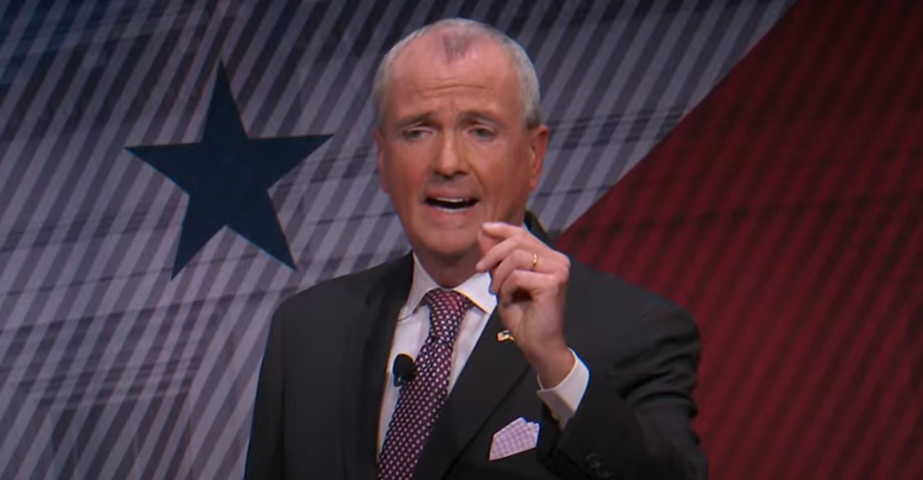Lethargy, Apathy, and Murphy

Tens of thousands of mail-in ballots have already been submitted and tabulated; early in person voting has begun, and in a matter of days thousands more New Jerseyans will trudge to local polling places to exercise the traditional check in and close the curtain behind you method to select a governor, legislative representation and a host of local offices.
Despite the presence of the state’s chief executive candidates at the top of the ticket, it has been a campaign of low enthusiasm, failing to capture, hold or boost the interest level normally associated with a gubernatorial election.
It’s been described as sleepy, moribund, unexciting and boring, lacking in the sharp and fiery exchanges which engage voters.
As one of only two states with off year gubernatorial contests, New Jersey has been overshadowed by the spirited and deadlocked race in Virginia --- a contest widely viewed as a referendum on President Biden as well as setting the tone and context for the 2022 Congressional midterms.
Even the New Jersey media seems uninspired. The Star-Ledger, for instance, suggested the race pitted one flawed candidate against another and chose to endorse the one with fewer flaws while the Jersey Journal advised its readers to skip the gubernatorial choices altogether and concentrate on the down ballot candidates.
For the re-election seeking Gov. Phil Murphy and Republican candidate Jack Ciattarelli, it’s been a challenge to seize the attention and interest of a pandemic-weary public battered by some 20 months of angst and personal fear of a deadly virus which has upended virtually every aspect of normal daily life.
It’s been March of 2020 since the first case of COVID-19 was diagnosed in New Jersey, leading to closing schools, banning public and private gatherings, shuttering businesses, restricting travel and --- in the view of some --- holding people hostage in their own homes.
It’s also produced arguments over wearing masks in public and private settings, allowing athletic and entertainment venues to re-open and, most controversial of all, whether government can or should mandate vaccinations as a pre-condition for access to public accommodations.
In light of all of this, the seeming indifference to a political campaign is understandable.
Confrontations over the state aid to education formula or contributing to the public pension fund lose much of their impact in an atmosphere where concern over illness and mortality dominate.
Daily reminders that more than one million New Jerseyans have been infected and nearly 28,000 have died have been pounded into the public psyche along with dire warnings that if vaccine resistance continues a return to normal will be incremental and protracted.
Against this backdrop, voter turnout ---- always a factor, obviously --- has taken on heightened importance.
The Murphy campaign has called in Democrats’ most prominent figures --- President Biden and the First Lady along with former President Obama ---- not so much to tout the governor’s record, but to inject enthusiasm into the party base and gin up turnout.
With Democrats holding a massive one million voter registration edge, conventional wisdom has it that the outcome is a foregone conclusion.
But only if they sit at the kitchen table and ink in the Democratic boxes or show up at polling locations. The Biden and Obama visits were designed to accomplish that.
Ciattarelli obviously can’t compete at that level of outside assistance; calling in ex-president Donald Trump was never in the cards, understanding that his presence would hurt more than help.
Instead, he has concentrated on what he hopes voters will accept as Murphy’s tax and spend record while failing to embrace any meaningful action to ease the property tax burden.
While gubernatorial races normally became more competitive the closer election day looms, Ciattarelli has narrowed the gap to as little as six points.
More striking, though, is the edge he holds among self-identified independent voters and his success in raising significant funds to achieve a near equal footing and remain competitive in the expensive advertising race.
He remains the underdog, however, and a path to victory is narrow, indeed. Overcoming the twin disadvantages of low interest and the voter registration deficit will be exceedingly difficult.
Whatever the Republican get out the vote strategy involves, it must be near perfect to provide Ciattarelli with any hope of success.
It is clear, though, that the state’s political cognoscenti and punditocracy that pronounced the race a double-digit landslide for Murphy and predicted it would be called 10 minutes after the polls closed spoke far too soon.
Who, though, would have thought that an odd-shaped blob of genetic material covered with spikes and visible only under a microscope would play such an outsized role?
Carl Golden is a senior contributing analyst with the William J. Hughes Center for Public Policy at Stockton University.





